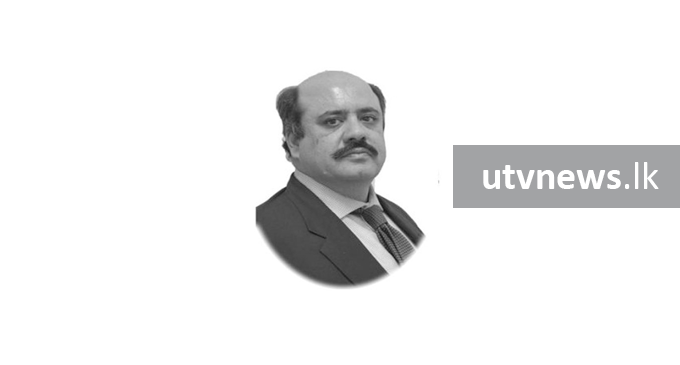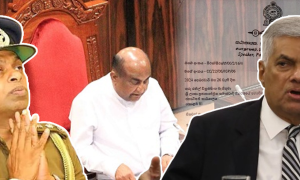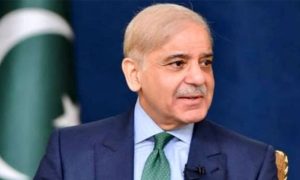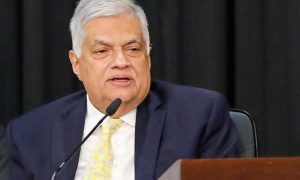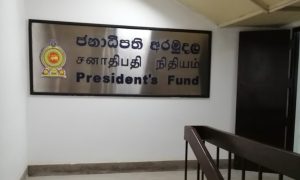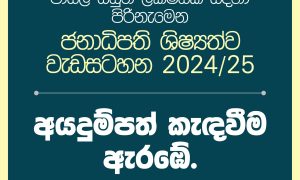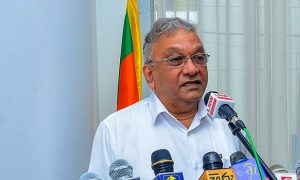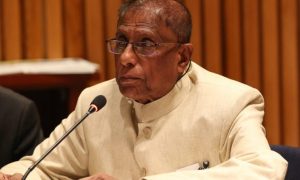(UTV|COLOMBO) – The strategic environment of South Asia has become alarming due to increasing tensions between India and Pakistan. The beat of war drums is loud, and could lead to a catastrophic conflict with repercussions for the entire world. Now more than ever before, rational voices are required to avoid, what could lead to, utter devastation.
Prime Minister Imran Khan has frequently assured the world community that Pakistan would not start a war, but has warned India that Pakistan’s armed forces were prepared to respond to any aggression from New Delhi.
After the Modi government abrogated Kashmir’s special status and imposed a strict curfew on its 8 million inhabitants on Aug. 5, tensions between the two nuclear-armed rivals have exponentially increased. On Aug. 16, India’s Defence Minister, Rajnath Singh, hinted that India’s no-first-use nuclear policy would be revised, and on Sept. 23, India’s army chief, General Bipin Rawat, said that 500 ‘terrorists’ from Pakistan were waiting to enter India.
Despite the Indian government’s largely apathetic attitude, dialogue remains the only wise option for preventing a looming catastrophe in the region.
Dr. Zafar Nawaz Jaspal
Trends now indicate that a prevailing artillery duel along the line of control could escalate into all-out war. On Sunday, firing along the de-facto border significantly increased and this will continue to happen. But both sides ought to realize that in a crisis that involves any nuclear dimensions, there is no winner. There are only losers.
The international community is conscious of the worsening situation in South Asia. US President Donald Trump, during his recent meetings with Prime Ministers Imran Khan and Narendra Modi in New York on the sidelines of the UN General Assembly (UNGA) session, advised both leaders to work their differences out. On September 24, in his opening speech at the UNGA session, Secretary General Antonio Guterres expressed his alarm at the escalation of tensions between India and Pakistan and also called for dialogue to resolve the crisis.
Today, Indian and Pakistani ruling elites seem unprepared for restarting a serious dialogue process to mitigate the tension. They are barely ready to sit under the same roof, left alone across a negotiating table, and both Modi and Khan are afraid of domestic political backlash if they do start a dialogue. The encouraging consideration is that Khan understands the vitality of peace between the two countries, in order to alleviate poverty and underdevelopment in the South Asian sub-continent. He has persistently assured the international community that Pakistan is prepared to resolve its issues with India, including the Kashmir dispute, through talking, and has requested international mediation at every forum.
Indeed, the continuity of a deadlock between the rival neighbors is neither in the interests of Kashmiris nor in those of Pakistan. Pakistan’s ruling elite must not become victims of arrogance or stubbornness. It will rebuff any option for bilateral or multilateral dialogue.
Despite the Indian government’s largely apathetic attitude, dialogue remains the only wise option for preventing a looming catastrophe in the region. Getting to the table will be a long, difficult process, but it must be begun. Islamabad has implied time and again that it will engage directly or indirectly with New Delhi in a dialogue process after the lifting of a curfew in Indian-administered Kashmir that is soon entering its second month, and that has led to a host of human rights abuses.
The role of powerful nations cannot be underestimated in resuming dialogue between India and Pakistan. On many occasions, Washington had successfully brought both sides to the negotiating table to manage conflict.
And besides the Americans, today, the Russians, Europeans, and several Arab nations have remarkable economic engagements and diplomatic relations with both India and Pakistan. They are all in a position to convince both sides to resume dialogue and help break the deadlock, ease the situation in Kashmir and decrease tensions that carry terrifying implications.
Dr. Zafar Nawaz Jaspal is an Islamabad-based analyst and professor at the School of Politics and International Relations, Quaid-i-Azam University. E-mail: jaspal_99@hotmail.com
[alert color=”faebcc” icon=”fa-commenting”]Keeping up to date with breaking news while you are on the move is now simple with UTV Alerts [textmarker color=”8a6d3b”]Type REG UTV and send to 77000[/textmarker] on your Dialog, Airtel, or Hutch mobile connection[/alert]

